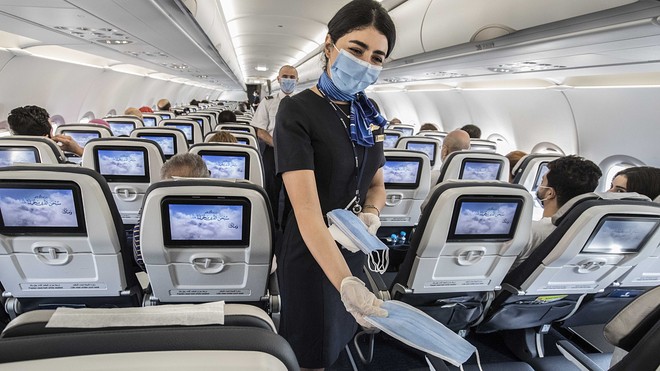
Here’s what to know about flying after a vaccine is approved.
A COVID-19 vaccine, from both Pfizer and Moderna, proven to be more than 90 percent effective in preventing the disease. Pfizer and its partner company BioNTech have even filed for emergency authorization of their vaccine with the Food and Drug Administration (FDA), which means the first doses could be available as early as mid-December, according to the Washington Post.
-
- Vaccine news shows early optimism from air travelers
- International route networks will have to restart i.e. international flights will be one of the key ways vaccine doses will be distributed around the world.
IATA estimates that shipping a single dose for the 7.8 billion people around the globe would fill 8,000 superjumbo Boeing 747 aircraft. “Land transport will help, especially in developed economies with local manufacturing capacity,” IATA’s statement says. “But vaccines cannot be delivered globally without the significant use of air cargo.” Even if half the world’s vaccines are delivered by ground transportation, de Juniac says distributing the remaining vaccines would still be the air cargo industry’s largest transport challenge ever.
-
-
- Proof of vaccine will be a new travel document i.e. proof of a vaccine could become as important as a passport when flying some international routes. E.g. passengers will likely need to prove they’ve had a vaccine that is deemed effective by – for instance – the Australian government.
-
Apps such as Common Pass, which airlines have used to put COVID-19 test results in a standardized format to make them easier to read, have the capability to show a passenger’s vaccine status, too.
-
-
- Tests and masks will stick around—even after a vaccine approval i.e.
-
“Testing is the only game in town to get people back to normal in the very near future because even with the U.K. getting early access to the vaccine, it will take a year and a half to vaccinate the entire country. And of course this is a global issue. And it’s going to take much longer before even the fastest vaccine can really have an impact around the world. So testing has to be our focus.” John Holland-Kaye, CEO of London Heathrow Airport
Additionally, both vaccines on the brink of approval require two doses to be effective, with the second shot given three to four weeks after the first. So even as vaccinations begin to be distributed on a large scale, face masks will be critical until the majority of people can get both doses.
At least 60 to 70 percent of the global population needs to be inoculated to achieve herd immunity—a tipping point at which community spread becomes unlikely—and slow the spread of the virus, according to the BBC.
-
-
- Flight schedules will be slow to return to pre-pandemic levels i.e. “the best case is a ~50% recovery rate until a vaccine is available,” and even when vaccinations do start, … flight demand and capacity might not fully bounce back for at least 3 years.
-
To read the Full Article, please click on the link: https://www.cntraveler.com/story/5-early-indicators-of-the-covid-19-vaccines-impact-on-air-travel
